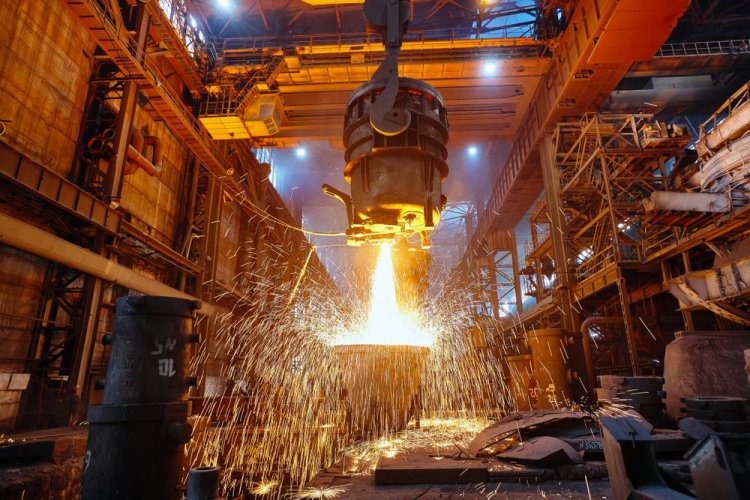Steelmakers at the Gerber Group said the Carbon Border Adjustment Mechanism (CBAM) threatens the existence of CO2-intensive industries such as cement, fertilizer or steel and stainless steel production.
The carbon tax contains a huge dirty hole regarding the use of scrap metal, reports Steel News.
It is noted that against the background of the energy crisis and droughts, the industry no longer considers green hydrogen as a tool for decarbonization. After all, its production requires not only a significant amount of renewable energy, but also fresh water, which is not available in sufficient quality and quantity in many potential producing countries.
The Gerber Group explained that the industry planned to use cheap Russian natural gas in the short and medium term to replace it with renewable hydrogen. However, due to the full-scale invasion, gas supplies were significantly reduced.
The article emphasized that replacing green hydrogen with other colors is not an alternative, as they cause much more CO2 emissions during production than is produced by burning most fossil fuels.
"US steelmakers, which are focused on EAF production and at least half of existing DRI/HBI production of several million tons per year, are forced to repeatedly deal with shortages and resort to scrap as alternative raw materials," the Gerber Group said.
The authors highlighted that the use of scrap, particularly steel and stainless steel, is a dirty hole in CBAM. After all, the carbon duty does not apply to scrap, due to the fact that it does not cause significant CO2 emissions during production. CBAM should not initially apply to certain products whose production does not cause significant emissions, such as ferrous scrap, some ferroalloys and fertilizers.
The authors criticized this approach, because it does not protect the environment. In their opinion, the ban on scrap exports from the EU is an attempt to protect and preserve resources in the bloc. In addition, the high content of scrap, up to 70-90%, allows steel producers to obtain free certificates in the Emissions Trading System (ETS). However, such steel contains almost no nickel or chromium alloys.
"In order to ensure the ecological integrity of the CBAM, a carbon tax must take into account all relevant inputs that contribute significantly to greenhouse gas emissions," they said.
The material added that the carbon footprint of European stainless steel is 2-5 times lower than that of imported steel. To ensure that CBAM effectively addresses carbon leakage and creates an incentive for third countries to reduce their own greenhouse gas emissions, it is important that the list of materials in the first stage of production also includes ferroalloys in the case of stainless steel.
“If a stainless steel producer outside of Europe now comes to the idea of using only stainless steel scrap for their exports destined for the EU market and abandons the more CO2-intensive nickel pig iron, then this huge gap in CBAM regulation could be an undesirable factor that changes the rules of the game," the Gerber Group emphasized.
It said there is a risk to the industry that the most important stainless steel scrap suppliers will no longer be able or willing to supply scrap.
"The fairy tale about 'green' steel may explode sooner than previously thought, and it may turn out that it's all just greenwashing," the authors said.
Earlier, EcoPolitic wrote, that the European carbon border adjustment mechanism (CBAM) can encourage exporters, in particular from the Asia-Pacific region, to switch to more ecological technologies.
As EcoPolitic previously reported, Bloomberg Opinion columnist Mihir Sharma said that the Carbon Boundary Adjustment Mechanism (CBAM) could slow down, rather than boost, global decarbonization efforts.





